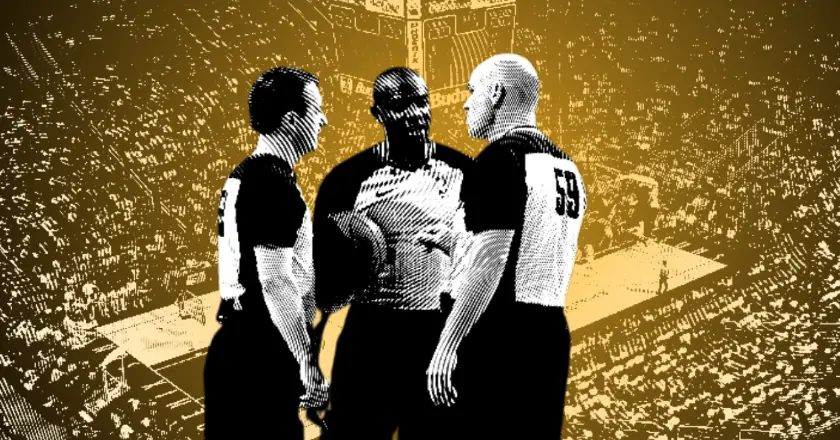In the high-stakes world of professional basketball, NBA referees hold a crucial role in maintaining fair play, enforcing the rules, and ensuring the integrity of the game. However, with the intense scrutiny and technological advancements, controversies surrounding officiating have become a persistent topic of discussion among fans, players, coaches, and pundits alike. This article aims to delve into the role of NBA referees, shed light on the challenges they face, and explore the controversies that have arisen over the years.
NBA referees are responsible for officiating games, making split-second decisions, and upholding the league’s rules and regulations. Their primary objective is to ensure fairness and maintain a level playing field for both teams. Referees have the power to issue fouls, violations, and technical fouls, assess penalties, and make judgment calls on various game situations. Their expertise and ability to make quick decisions have a direct impact on the flow, outcome, and integrity of NBA games.
Officiating an NBA game is no easy task. Referees must possess in-depth knowledge of the rulebook, excellent judgment, and a keen eye for the game’s nuances. However, several challenges make their job even more daunting.
NBA games are played at a blistering pace, with lightning-fast athletes competing at the highest level. Referees must keep up with the action while making accurate calls in real-time.
Referees are often required to make instant judgments on fouls, violations, and other infractions. These decisions can influence the momentum of a game and can be subjected to intense scrutiny.
Referees, like any other human, are prone to making mistakes. Given the speed and complexity of the game, it is unrealistic to expect perfection. However, errors by referees can lead to controversies and impact the perception of fairness.
Over the years, controversies surrounding NBA officiating have become a topic of great debate.
One recurring criticism revolves around the notion of star treatment, where star players are perceived to receive favorable calls from referees due to their reputation and marketability. Critics argue that this bias undermines the fairness of the game and creates an uneven playing field.
Referees, despite their best efforts, can occasionally miss crucial calls or make incorrect judgments. These missed calls can have game-changing implications and fuel discontent among players, coaches, and fans.
The introduction of instant replay technology has aimed to minimize errors and improve accuracy. However, the implementation of replay challenges has introduced its own set of controversies, including delays, inconclusive decisions, and subjective interpretations.
Consistency in applying the rules across different games and referees has been a persistent concern. Fans and participants often question why similar actions result in different calls, leading to frustrations and accusations of biased officiating.
Recognizing the importance of addressing controversies, the NBA has implemented various measures to enhance officiating and increase transparency.
The league invests in ongoing training and development programs for referees to enhance their rule knowledge, decision-making skills, and game management abilities. Regular feedback and performance evaluations are conducted to improve consistency and accuracy.
The NBA has taken steps to improve transparency by publicly acknowledging officiating errors through Last Two Minute Reports. These reports analyze the accuracy of crucial calls in the final two minutes of close games, providing insights into the league’s commitment to accountability.
The NBA has embraced technology to assist referees in making accurate decisions. The implementation of instant replay systems and expanded use of video review has aimed to reduce errors and provide more objective rulings on various game situations.
To address concerns and gather input from various stakeholders, the NBA has established an Officiating Advisory Council. This body comprises former players, coaches, and referees who collaborate to enhance officiating standards and resolve contentious issues.
NBA referees play a critical role in maintaining the integrity and fairness of professional basketball. While controversies surrounding officiating have persisted, the league and its officials are actively working to address concerns, improve transparency, and enhance the accuracy of calls. As the game continues to evolve and technology advances, finding the delicate balance between human judgment and technological assistance remains an ongoing challenge. Nonetheless, the tireless efforts of NBA referees ensure that the game we love remains as fair and entertaining as possible.

